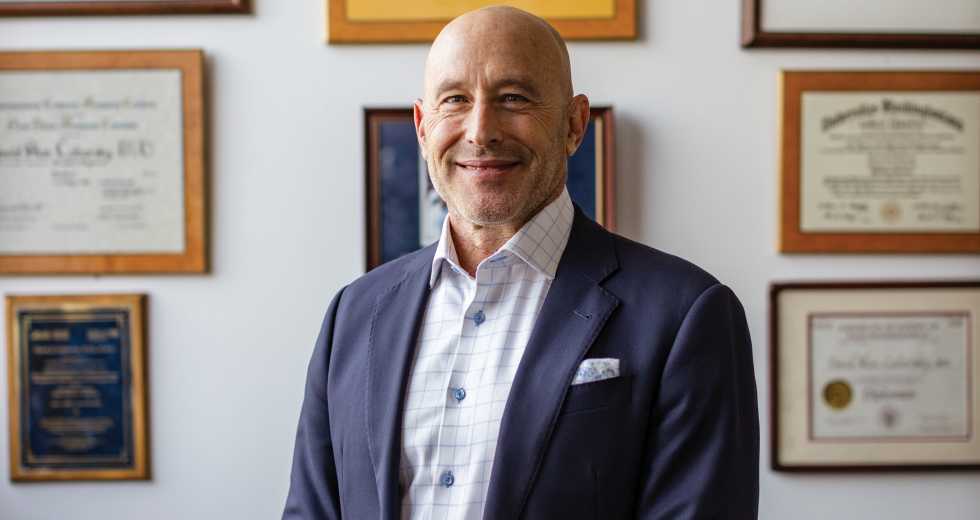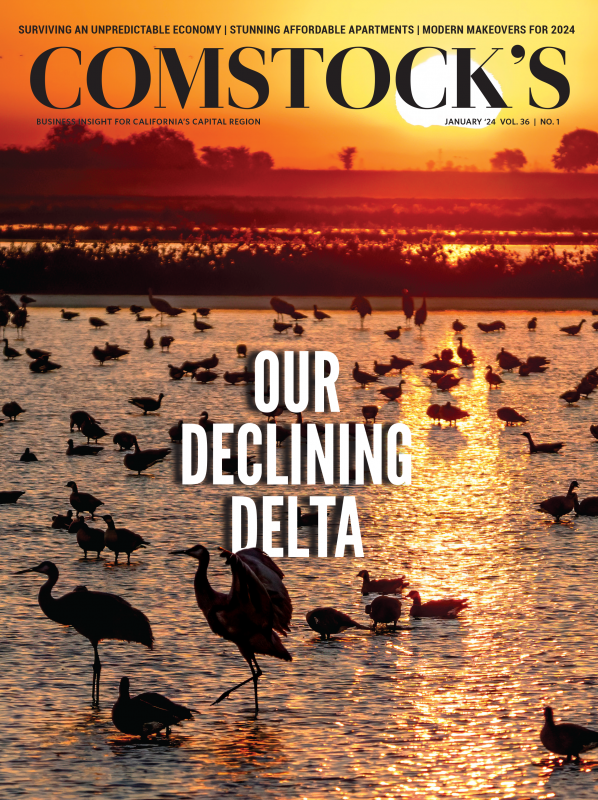Being a CEO isn’t easy. But that’s only half of Dr. David Lubarsky’s job. He is both the CEO of UC Davis Health and also the school’s vice chancellor of human health sciences, meaning he oversees the UC Davis School of Medicine and Betty Irene Moore School of Nursing, linking education to the UC Davis Medical Center — which he also oversees. It’s a lot.
“That was the reason the office was created,” says Lubarsky, “to truly unify us as an integrated academic medical system.” Lubarsky’s purview includes $5.5 billion of revenue and 20,000 employees, and he notes that “after the state government, we’re the largest employer in the city of Sacramento.”
His secret to keeping all the balls spinning? “Staying out of the way of great people,” Lubarsky says with a laugh. “Good leadership is always about empowering your team. That’s how you run such a sprawling organization.”
Favorite to-do list system: Jotting down notes on his iPhone or a pad of paper. “I’m old fashioned. I actually learned how to do cursive.”
Tricks for staying focused: This comes naturally. “I’ve always been really good at reading and retaining the written word. It’s a gift. I didn’t get the gift of lifelong hair,” he says with a laugh, “but I did get the gift of being able to churn numbers in my head and having a sort of photographic and audiographic memory.”
5:45AM (sometimes earlier) – Alarm goes off. He starts every morning with thoughts of gratitude and considers this “the most important thing that any leader can do.”
5:50AM – Pours an espresso. Bangs out emails — lots of emails. Lubarsky is a speed-reader and speed-typist and routinely fires off 100 emails before the workday even starts.
6:15AM – He’s also devouring news, including both The New York Times and Wall Street Journal (“I like to hear what both sides are saying”) and medical journals. “I spend a large part of my day accumulating information that I believe is pertinent to the current and future care of human beings.”
6:30AM – On days without a 7 a.m. meeting (those are common), he heads to P20 gym for either Crossfit or hot yoga. (If there’s a 7 a.m. meeting, he’ll later squeeze in a nighttime workout.) The workouts are crucial.
7:30AM – Chugs a 30-gram protein shake, takes a quick shower, preps for the day.
8:00AM - The gauntlet of meetings begins. These include one-on-one synch ups with the CFO, COO, chief medical officer, chief DEI officer, dean of nursing and the rest of his direct reports; meetings with Chancellor Gary May (his boss), and on and on and on.
10:00AM - Sometimes he uses this hack during meetings: He’ll immediately jot off a next-step email during the conversation itself, saying something like, “This is so important, and if I don’t get it out right now it will just sit on my desk.”
12:00PM – Lunch with colleagues or government officials or the California Health Association or maybe the Greater Sacramento Economic Council. “I try and be friendly with everybody who can positively influence the care that we’re able to deliver in Sacramento. And that requires constantly building relationships.”
1:30PM – More meetings, such as a sync-up with the new chief nursing executive, and then he’ll join her to speak with the nurses on the floor. “We’re always talking about how do we balance what our employees need with what our organization needs?” He often thinks about training, development and retention.
3:00PM – In these meetings, Lubarsky encourages his staff to speak up. “People have to feel free to speak their mind. And trust me, all of my direct reports feel like they can tell me I’m dead wrong.”
5:00PM – On most days the evenings are filled with networking events or dinners. Every Monday night, for example, he has a “kitchen cabinet” working dinner with his C-suite to talk openly about big decisions.
7:00PM – On the rare evenings he’s off duty, Lubarsky makes himself a chef’s salad for dinner accompanied by a glass of red wine (he’s a collector).
8:00PM - Maybe bingeing a mind-bending show like “Murder at the End of the World” or “Carnival Row,” sinking into a book (he recently enjoyed “Think Like a Monk”) or even just reflecting. “I try and use my wind down time to think.”
10:00PM – Adjusts his bedtime for when he needs to get up the following morning, targeting seven hours of shuteye. “If I get seven hours of sleep and one hour of exercise, I can work the other 16, no problem.”
–
Stay up to date on business in the Capital Region: Subscribe to the Comstock’s newsletter today.
Recommended For You
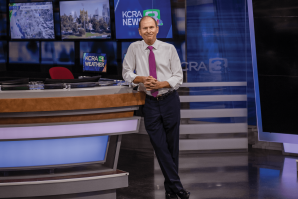
The Way We Work: KCRA Chief Meteorologist Mark Finan
A glimpse into his daily life of monitoring the weather for the Capital Region
Will it rain this weekend? For over 30 years, the man Sacramento trusts for that answer is Mark Finan, chief meteorologist at KCRA.
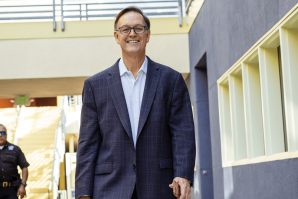
The Way We Work: Jessup University President Dr. John Jackson
A glimpse into the daily life of the pastor and Christian university leader
Dr. John Jackson grew up as a pastor’s kid, but he didn’t see that as his calling. “I told God in my own way, ‘I’ll do anything you want, except I’ll never be a missionary, and I’ll never be a pastor,’” says Jackson. So of course he became a pastor.
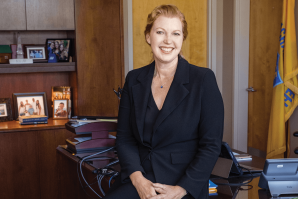
The Way We Work: Sacramento Police Chief Kathy Lester
A glimpse into the daily life of Sacramento’s first female police chief
It’s a job just like any other job, except with responsibility for the safety of an entire city. No pressure. When Kathy Lester was sworn in as chief of the Sacramento Police Department in December 2021, she joined a new executive team with fresh eyes, and they surveyed the many challenges.
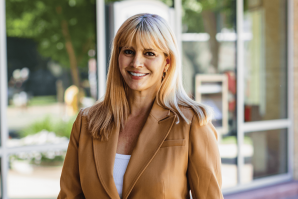
The Way We Work: Stoel Rives Managing Partner Melissa Jones
A glimpse into the daily life of the law firm managing partner
When you’re the managing partner of a blue chip law firm it’s kind of like being a CEO, but in some ways it’s far more complex. Just ask Melissa Jones, managing partner at Stoel Rives, a firm known for its expertise in renewable energy and natural resources.
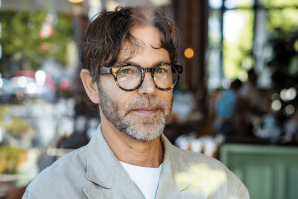
The Way We Work: Michael Hargis
A glimpse into the daily life of restaurateur and entrepreneur Michael Hargis
Michael Hargis has always been entrepreneurial; as a fifth-grader he sold condoms to the upperclassmen. He would later produce parties, raves and music events like Sacramento’s 2012 Electronic Dance Festival. Then came food.



